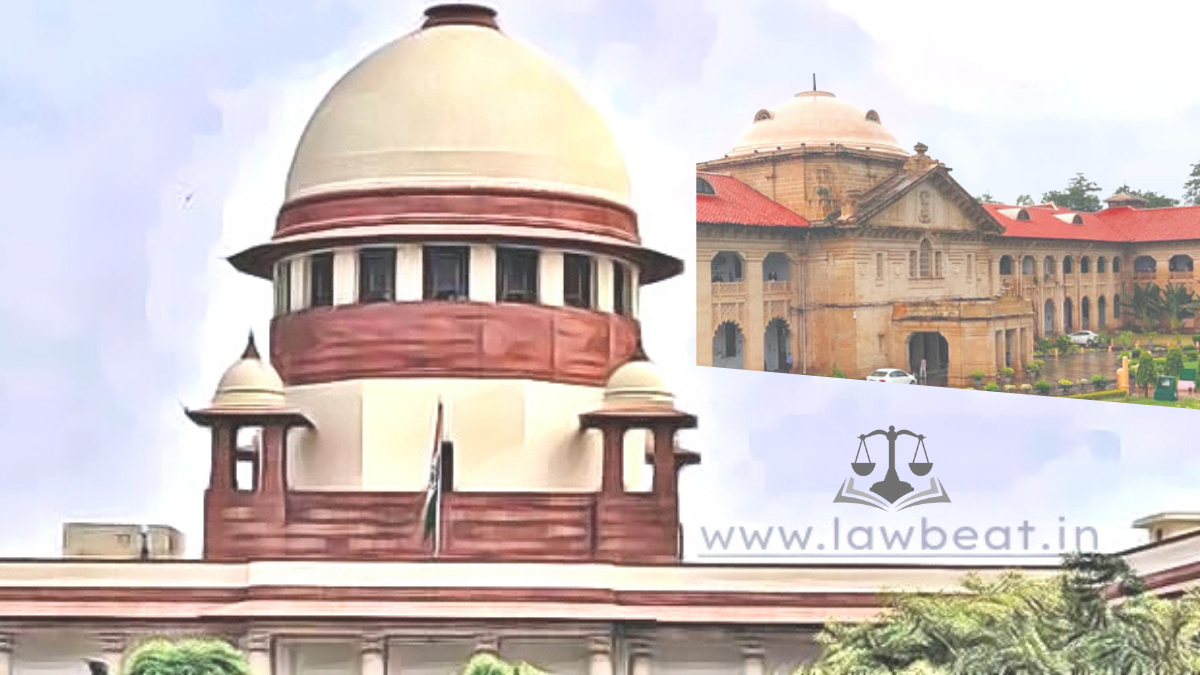'Ram Bharose': Supreme Court stays Allahabad HC order, says Courts should refrain from indulging in matters of national importance if SC seized of it

The Supreme Court has stayed the order dated May 17, 2021 passed by the Allahabad High Court bench of Justice Siddhartha Varma & Justice Ajit Kumar in the court took an overview of the health facilities and medical systems management in the State of Uttar Pradesh due to the upsurge in the COVID cases.
Court had remarked that the medical system of the state pertaining to small cities & villages could only be taken to be like, “Ram Bharose”.
Justice Vineet Saran & Justice BR Gavai while taking into account Solicitor General Tushar Mehta’s submissions that such statements demoralised the health workers, such observations were capable of creating panic amongst citizens of state & nullifying the endeavours of the state govt observed that,
“These observations in our view may have been passed in anxiety & concern for the general public. But since apparently the same cannot be implemented the said directions may be treated by SG as only observations & advice & not directions. By passing such orders, the state govt should not mean that they should adhere to the directions but the same should be kept in mind as advice.”
Further the Court, while emphasising on the need for the High Court to exercise Doctrine of Impossibility said that, “Further, by again appreciating the efforts of the judges of HC in looking into the matter in depth we are of the opinion that the HC should consider the possibility of directions & the court should avoid passing the orders which are impossible.”
Taking into account the Solicitor General's submission that important matters related to CoVID should be heard by the bench presided by the Chief Justice, the Court observed that it would be desirable for the matter to be heard by the bench presided by the Chief Justice.
“High Court should normally refrain from indulging in matters of national importance especially when the Supreme Court is dealing with the national matter”, the Court also said.
On SGI’s submissions that the directions passed had wide ramifications on other states too, the Court noted that, “Court should take into consideration the other states too & not only the state or the villages.”
The Bench was hearing an appeal against slew of directions on medical infrastructure which the Allahabad High Court had passed in the impugned order.
The following directions were issued:
- All nursing homes should have an oxygen facility on every bed.
- Every nursing home/ hospital which has more than 20 beds should have at least 40 per cent beds as Intensive Care Units.
- Of the designated 40 per cent; 25 percent should have ventilators, 25 percent should have High Flow Nasal Cannula and 50 per cent of the 40 per cent reserved beds should have bipap machines. This should be made compulsory for all the nursing homes/ hospitals in the State of Uttar Pradesh.
- Every nursing home/ hospital which has more than 30 beds should compulsorily have an oxygen production plant.
- In the State of Uttar Pradesh, we find that apart from various Institutes like Sanjay Gandhi Postgraduate Institute and the Universities like the King George’s Medical University and Banaras Hindu University, we have five more medical colleges in Prayagraj, Agra, Meerut, Kanpur and Gorakhpur. These Colleges should have enhanced facilities as are there with the Sanjay Gandhi Postgraduate Institute within a period of four months. Emergency laws should be applied for the acquisition of land for them. Funds should be provided to them forthwith so that they graduate from a medical college to an Institute of the standard of the Sanjay Gandhi Postgraduate Institute. For this there should also be given a certain extent of autonomy.
- As far as the villages and small urban areas are concerned, they should be given all kinds of pathology facilities and treatments should be made available in Community Health Centres which are at par to the treatment given by Level-2 hospitals in bigger cities. If a patient however becomes serious in the rural areas or in small towns then ambulances with all kinds of Intensive Care Unit facilities should be provided so that the patient can be brought to a hospital which has proper medical facilities in a bigger town.
Case Title: State of UP v. In-Re Inhuman Condition At Quarantine Centres And For Providing Better Treatment To Corona Positive v. State of UP
